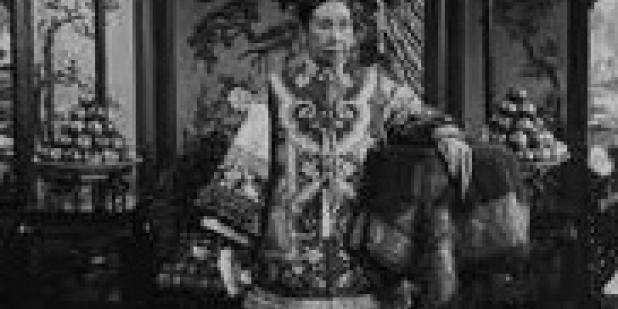Join us for a free one-day workshop for educators at the Japanese American National Museum, hosted by the USC U.S.-China Institute and the National Consortium for Teaching about Asia. This workshop will include a guided tour of the beloved exhibition Common Ground: The Heart of Community, slated to close permanently in January 2025. Following the tour, learn strategies for engaging students in the primary source artifacts, images, and documents found in JANM’s vast collection and discover classroom-ready resources to support teaching and learning about the Japanese American experience.
The Empress Dowager
Smithsonian Institute presents the only photographic series taken of Cixi—the supreme leader of China for more than forty-five years—that represents a unique convergence of Qing court pictorial traditions, modern photographic techniques, and Western standards of artistic portraiture.
Where

Following China's disastrous Boxer Rebellion, the Grand Empress Dowager Cixi (1835–1908) was held in low regard throughout the world. In 1903, a strategy emerged to use photographic portraiture to rehabilitate her public image. Cixi allowed a young aristocratic photographer named Xunling to take elaborately staged shots of her and her court, designed to convey imperial authority, aesthetic refinement, and religious piety. As the only photographic series taken of Cixi—the supreme leader of China for more than forty-five years—it represents a unique convergence of Qing court pictorial traditions, modern photographic techniques, and Western standards of artistic portraiture.
The Freer Gallery's thirty-five glass plate negatives, acquired from the estate of the photographer's sister, Princess Der Ling, comprise the only group of these intimate portraits held outside of the Palace Museum in Beijing. Following a major digitization project, the negatives will be revealed in full detail in The Empress Dowager, a compelling and immersive exploration of this enigmatic icon. The exhibition also will feature two original prints of Cixi that were presented as diplomatic gifts to President Theodore Roosevelt in 1904 and to his daughter Alice in 1905, underscoring the complex relationship between the Qing court and foreign powers. A display of film clips will demonstrate the evolution of the Empress Dowager as a character throughout the twentieth century—from a depraved tyrant to a long-suffering ruler.
Featured Articles
Please join us for the Grad Mixer! Hosted by USC Annenberg Office of International Affairs, Enjoy food, drink and conversation with fellow students across USC Annenberg. Graduate students from any field are welcome to join, so it is a great opportunity to meet fellow students with IR/foreign policy-related research topics and interests.
RSVP link: https://forms.gle/1zer188RE9dCS6Ho6
Events
Hosted by USC Annenberg Office of International Affairs, enjoy food, drink and conversation with fellow international students.
Join us for an in-person conversation on Thursday, November 7th at 4pm with author David M. Lampton as he discusses his new book, Living U.S.-China Relations: From Cold War to Cold War. The book examines the history of U.S.-China relations across eight U.S. presidential administrations.




